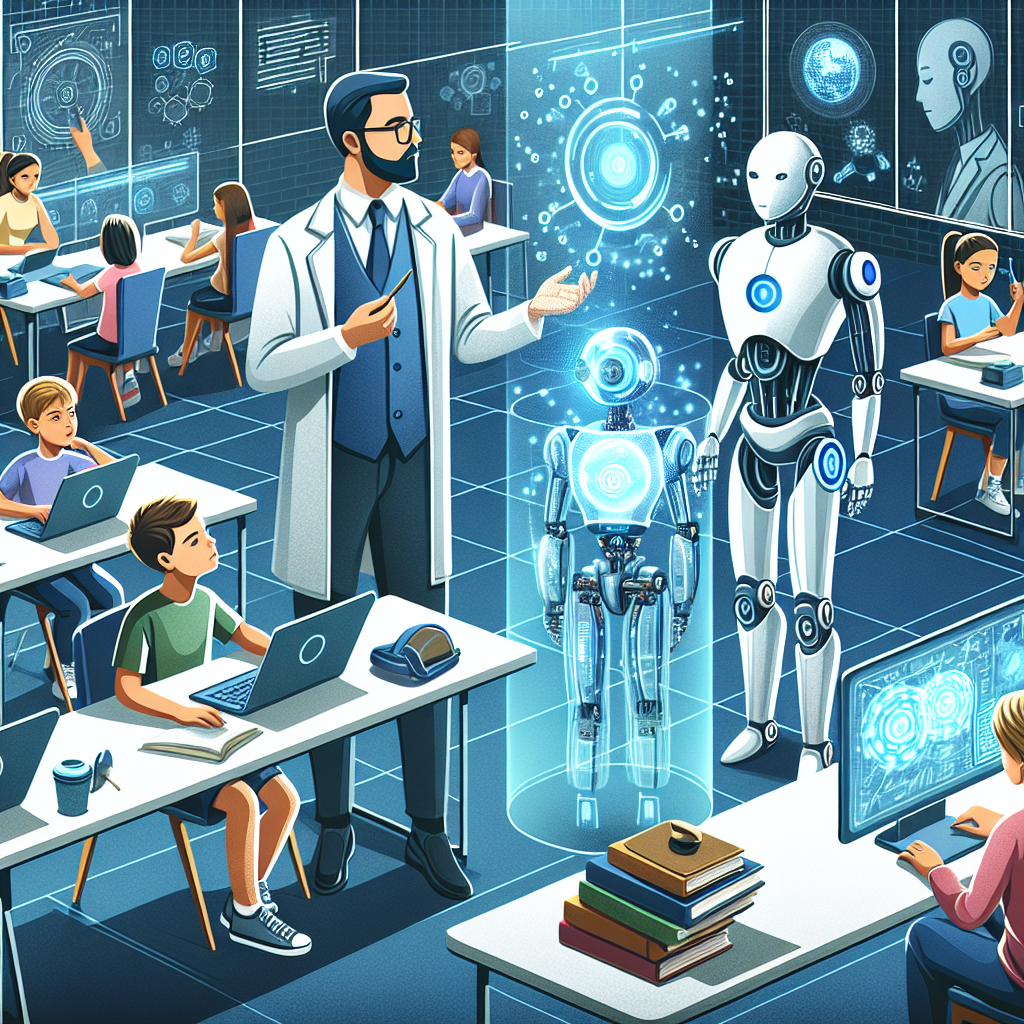The use of artificial intelligence (AI) tools in education is rapidly growing, with the potential to revolutionize the way students learn and teachers teach. From personalized learning experiences to automated grading systems, AI tools are already making a significant impact in classrooms around the world. But what does the future hold for AI in education? In this article, we will explore the potential of AI tools in education and discuss how they can continue to shape the future of learning.
AI tools in education are already being used in a variety of ways, from personalized learning platforms to virtual tutors. These tools are designed to adapt to each student’s individual learning needs and provide personalized feedback and support. For example, adaptive learning platforms use AI algorithms to analyze students’ performance and tailor their learning experiences accordingly. This allows students to learn at their own pace and focus on areas where they need the most help.
Another area where AI tools are making a big impact is in automated grading systems. AI-powered tools can analyze students’ assignments and provide instant feedback on their work. This not only saves teachers time on grading, but also allows students to receive feedback in real-time, helping them to improve their skills and understanding of the material.
In addition to personalized learning and grading, AI tools are also being used to enhance classroom management and communication. For example, AI-powered chatbots can help students with their homework or answer questions about course materials. These chatbots can provide instant responses to students’ queries, freeing up teachers to focus on more complex tasks.
As the use of AI tools in education continues to grow, so too will their capabilities. In the future, we can expect to see even more advanced AI tools that are capable of understanding and responding to students’ emotions. For example, AI-powered tutors may be able to detect when a student is feeling frustrated or confused and provide support and encouragement accordingly.
Furthermore, AI tools may also be used to create virtual reality (VR) simulations that allow students to explore complex concepts in a more immersive and engaging way. These simulations could provide students with hands-on experience in subjects like science, engineering, and history, helping them to better understand and retain the material.
Overall, the future of AI tools in education looks promising. As these tools become more advanced and sophisticated, they have the potential to revolutionize the way students learn and teachers teach. By providing personalized learning experiences, automated grading systems, and enhanced classroom management, AI tools can help to improve student outcomes and create a more engaging and effective learning environment.
FAQs:
1. How can AI tools benefit students in education?
AI tools can benefit students in education by providing personalized learning experiences, instant feedback on assignments, and support with homework and course materials. These tools can help students to learn at their own pace, improve their skills, and better understand complex concepts.
2. Will AI tools replace teachers in the future?
While AI tools have the potential to enhance the learning experience and support teachers in the classroom, they are unlikely to replace teachers entirely. Teachers play a crucial role in providing mentorship, guidance, and support to students, which AI tools cannot replicate.
3. Are AI tools accessible to all students?
While AI tools are becoming more widely available in education, there are still barriers to access for some students, such as lack of internet connectivity or technology resources. Efforts are being made to ensure that AI tools are accessible to all students, regardless of their background or circumstances.
4. How can teachers incorporate AI tools into their teaching?
Teachers can incorporate AI tools into their teaching by using adaptive learning platforms, automated grading systems, and AI-powered chatbots to enhance the learning experience. By integrating these tools into their lessons, teachers can provide students with personalized support and feedback, while also saving time on grading and administrative tasks.
5. What are the ethical considerations of using AI tools in education?
There are several ethical considerations to take into account when using AI tools in education, such as data privacy, bias in algorithms, and the potential for technology to replace human interaction. It is important for educators to be aware of these considerations and to use AI tools responsibly and ethically.

